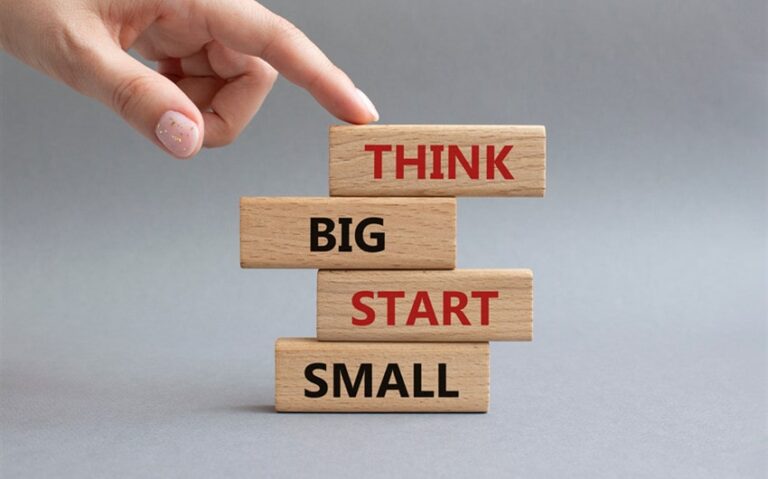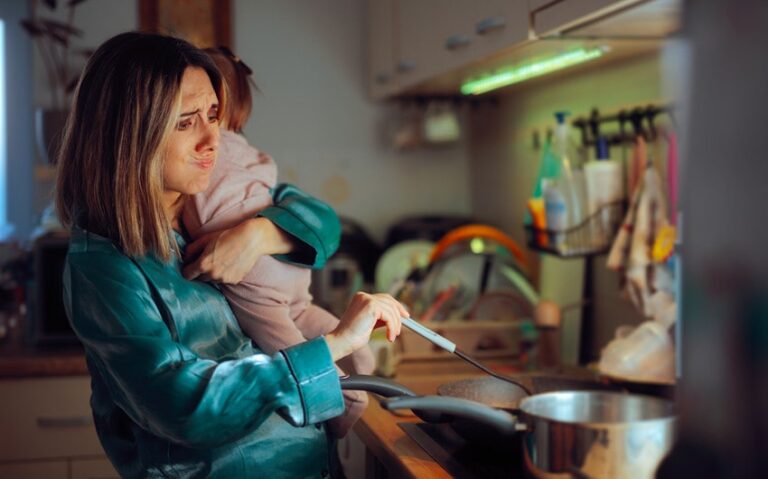When Life Feels Like a Work in Progress
There are seasons in life when nothing feels quite settled. You might be in transition—between jobs, between goals, between versions of yourself. You’re trying, but the results don’t show yet. You’re changing, but the world hasn’t caught up to notice. And even though you’re doing your best, it feels like you’re still waiting for everything to finally make sense.
If that sounds familiar, you’re not alone. Most of us live much of our lives in this in-between space, even if we don’t always admit it. Life rarely unfolds in clean lines or tidy chapters. It’s messy, uncertain, and often full of waiting.
But what if being a work in progress isn’t something to fix or escape? What if it’s a beautiful part of being human?
The Illusion of Having It All Together
We live in a culture that glorifies completion—finished products, polished outcomes, and neat success stories. We scroll through images of people who seem to have it all figured out, and we quietly measure ourselves against them. It’s easy to believe that everyone else has found the secret formula for peace and purpose while we’re still stumbling our way through.
But no one has it all together. Some people are just better at curating the illusion.
Even the most confident person you know has days when they doubt their choices. The most successful people still feel uncertain about what comes next. The truth is, we’re all improvising—trying, learning, adjusting as we go.
The idea that we’re supposed to “arrive” at a final, perfectly composed version of ourselves is unrealistic. Growth doesn’t end. There is no finished version of you waiting to be discovered—only the one you’re continually becoming.
The Beauty of the Unfinished
We often resist being unfinished because we associate it with failure. But there’s something deeply beautiful about the process of becoming. The fact that we’re constantly learning means we’re alive. The fact that we’re not done yet means there’s still room for possibility.
Think of your life like a painting that’s still being worked on. Some parts are vibrant, others are muted. Some areas are layered with detail, while others are still blank space waiting to be filled. It’s not less beautiful because it’s unfinished—it’s meaningful because it’s unfolding.
The beauty of being a work in progress is that it allows for growth. It allows for change. It gives you permission to start again, as many times as you need to.
You don’t have to have all the answers. You don’t even have to know the destination. You just have to keep showing up for yourself in the middle of the uncertainty.
Learning to Be Okay with the In-Between
The in-between can be uncomfortable. It’s a space where clarity hasn’t arrived yet, and patience is tested daily. But it’s also where transformation happens.
When life feels uncertain, our instinct is to rush to the next thing—anything that feels stable or predictable. But if you can learn to sit in the discomfort, you start to see that the waiting is not wasted. It’s where perspective deepens. It’s where self-awareness grows. It’s where you learn to listen more closely to what you really need.
The in-between teaches you to trust that not knowing doesn’t mean nothing is happening. Growth often begins long before it becomes visible. Roots grow underground before the flower blooms. Change happens quietly before it shows up loudly.
When you learn to make peace with the middle, you start to find comfort in progress that’s still unfolding.
Redefining Progress
Progress doesn’t always look like forward motion. Sometimes it’s standing still long enough to catch your breath. Sometimes it’s saying no, stepping back, or taking time to reflect before moving ahead.
There are seasons when simply getting through the day is a victory. When you’re healing, resting, or realigning, progress can look slower—but it’s no less real.
It’s easy to measure progress by visible results: the new job, the finished project, the tangible win. But inner progress—learning to manage your emotions, to set boundaries, to be kinder to yourself—is just as important.
When you redefine progress, you start to appreciate the quieter milestones. You see that you’re not behind—you’re just building something that takes time.
The Mess Is Part of the Meaning
We tend to romanticize transformation, as if growth happens neatly and gracefully. But most of the time, it’s messy. It’s tears on the kitchen floor. It’s doubt that lingers. It’s taking two steps forward and one step back.
The mess doesn’t mean you’re doing it wrong. It means you’re in the middle of something real.
The most meaningful changes rarely come easily. They require patience, reflection, and the willingness to feel uncomfortable. The mess is where resilience forms—it’s where you learn what you’re made of.
Instead of judging yourself for the chaos, try to look at it with compassion. You’re doing your best with what you know, and that’s enough. The mess is evidence of effort. It’s proof that you’re in motion.
Embracing Growth Over Perfection
Perfection is tempting—it promises safety, control, and approval. But it also keeps you stuck. When you chase perfection, you stop taking risks. You wait until everything feels “ready,” which usually means you never start.
Growth, on the other hand, is humble. It asks for participation, not perfection. It’s not about flawless execution; it’s about showing up and learning along the way.
When you shift your focus from being perfect to simply being present, everything changes. You start taking action, forgiving mistakes, and appreciating the lessons that come from failure.
Growth doesn’t require you to have it all figured out—it just asks you to keep going.
The Importance of Self-Compassion
When life feels like a work in progress, it’s easy to be hard on yourself. You might think, I should be further along by now. But that kind of self-criticism only adds weight to an already heavy season.
What you need most during times of uncertainty is compassion—the kind you’d offer a friend who’s doing their best in hard circumstances.
Remind yourself that growth takes time. You don’t owe anyone speed or perfection. You’re allowed to move at your own pace.
Self-compassion turns frustration into patience and pressure into grace. It helps you remember that being unfinished doesn’t make you unworthy—it makes you human.
Trusting the Process
Trusting the process doesn’t mean pretending everything is fine. It means believing that everything you’re experiencing has a purpose, even if you can’t see it yet.
Every chapter, even the confusing ones, is shaping you into the person you’re meant to become. The detours, delays, and pauses all serve their role. They’re part of your evolution, not interruptions of it.
When you trust that the process is working—even when it feels uncertain—you stop fighting the timeline. You stop needing to control every outcome. You start relaxing into the rhythm of your own becoming.
Life isn’t meant to be perfectly organized. It’s meant to be lived, learned, and felt.
Finding Peace in the Progress
Peace doesn’t come from having it all figured out—it comes from making peace with the fact that you won’t.
When you stop striving for completion and start appreciating the process, life feels lighter. You can breathe again. You can find joy in moments that once felt incomplete.
Peace is realizing that you don’t need to have every answer to move forward. You don’t need to be finished to be fulfilled.
The beauty of being a work in progress is that there’s always room to evolve, to grow, to begin again.
Closing Thoughts
If your life feels like a work in progress, it’s not a sign of failure—it’s a sign of life. It means you’re still growing, still curious, still open to change.
You don’t need to rush to the next version of yourself. You don’t need to prove that you’re finished. You’re allowed to take your time, to be unfinished, to evolve slowly and quietly.
Because maybe the goal was never to be done. Maybe the goal is to keep becoming—to live with enough curiosity to keep shaping, refining, and discovering who you are.
You are not behind. You are not incomplete. You are simply becoming—and that’s exactly where you’re meant to be.





